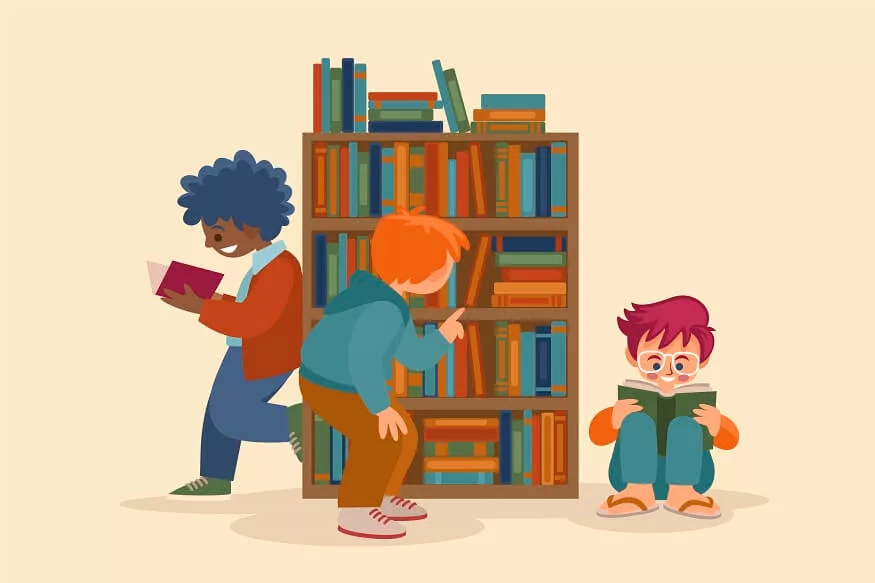Instilling good manners from a young age is a cornerstone of upbringing, shaping children into individuals who navigate the world with grace and respect. In this article, we delve into the essential Indian etiquettes that every child should be taught.
Namaste
The traditional Indian greeting, Namaste, extends beyond a mere salutation. It signifies a recognition of the divine spark within each individual. Teaching children to say Namaste with folded hands cultivates a sense of humility and acknowledgment of the inherent goodness in others.
An extension of Namaste is the practice of touching the feet of elders as a sign of respect. This not only imparts humility but also connects children to the wisdom and experiences of the older generation.
Encourage the use of respectful titles when addressing elders. Terms like ‘Aunty,’ ‘Uncle,’ ‘Didi,’ and ‘Bhaiya’ denote not just a familial connection but also respect for age and seniority.
Also Read: What Are The Playground Etiquette For Children and Parents
Table Manners
- Washing Hands Before Meals: Hygiene is an integral part of Indian etiquette. Teaching children to wash their hands before meals instils the importance of cleanliness and health.
- Eating with Hands: While not universal, many Indian families eat with their hands. Teaching children the art of eating with hands without making a mess fosters a connection to cultural practices and emphasises the importance of mindful eating.
- Respecting Elders at the Table: Children should be taught to wait for elders to start their meal before they begin. This simple act of patience demonstrates consideration and an understanding of hierarchy within the family.
- No Wastage: Wasting food is strongly discouraged in Indian culture. Teaching children to take only what they can eat and to finish their meals promotes a sense of gratitude for the food they have.
Respecting Elders
The practice of touching the feet of elders is a symbol of seeking blessings and showing respect. Children should be taught when and how to perform this gesture, instilling a sense of humility and acknowledging the wisdom of elders. Addressing elders with polite language is a fundamental aspect of Indian etiquette. Teaching children phrases like ‘please,’ ‘thank you,’ and ‘excuse me’ fosters courteous communication.
In public spaces or at home, children should be taught to offer their seat to elders. This practice reflects consideration and an understanding of the needs of others.
Festive Etiquettes
- Receiving Gifts: Teaching children how to receive gifts graciously is a crucial aspect of Indian etiquette. This involves expressing gratitude, not immediately tearing open the wrapping, and acknowledging the thoughtfulness of the gesture.
- Saying ‘Thank You’ After a Meal: It is customary to express gratitude after a meal in Indian culture. Children should be taught to say ‘thank you’ to the person who prepared the meal, reflecting appreciation for their efforts.
- Dressing Appropriately: Festivals often involve dressing in traditional attire. Teaching children to dress appropriately for occasions instils a sense of cultural pride and the importance of presenting oneself respectfully.
Also Read: 10 School Cafeteria Etiquette Every Kid Should Know
Temple Etiquettes
- Removing Shoes Before Entering: Removing shoes before entering a temple is a sign of respect for the sacred space. Teaching children this practice instils a sense of reverence for places of worship.
- Practising Silence: Encourage children to maintain silence or speak in hushed tones within the temple premises. This practice fosters an atmosphere of tranquillity and respect for others engaged in prayer.
- Participating in Rituals: In many families, children actively participate in temple rituals. Teaching them the significance of these rituals and how to conduct themselves during prayers instils a connection to cultural and spiritual practices.
Social Etiquettes
- Offering and Accepting Gifts: Teach children the art of giving and receiving gifts graciously. This includes offering gifts with both hands and expressing genuine appreciation when receiving a gift.
- Apologising Sincerely: The ability to apologise sincerely is an important facet of Indian etiquette. Children should be taught to admit mistakes, express remorse, and seek forgiveness when necessary.
- Not Interrupting Conversations: In group settings or family discussions, children should be taught not to interrupt conversations. Waiting for an appropriate moment to speak demonstrates patience and consideration.
Also Read: Moral Values for Students That Help Build a Good Character
School Etiquettes
Respecting teachers is paramount in Indian culture. Children should be taught to address their teachers with the appropriate titles and to listen attentively in class. Instil the habit of seeking permission before entering a room or leaving a classroom. This practice extends to seeking permission from teachers or elders before making decisions. Children should be taught to keep their belongings organised and to take care of their school materials. This reflects a sense of responsibility and consideration for shared spaces.
Communication Etiquettes
Making eye contact during conversations is a sign of attentiveness and respect. Children should be taught to maintain appropriate eye contact when speaking or listening. The tone and language used in communication are crucial. Children should be taught to speak politely, avoiding rude or disrespectful language.
Actively listening to others is an essential aspect of communication etiquette. Children should be taught to give their full attention when someone is speaking, fostering better understanding and empathy.
Public Space Etiquettes
- Standing in Queues: Standing in queues patiently is a common practice in Indian culture. Children should be taught to wait their turn, whether in school, public spaces, or places of worship.
- Respecting Elders in Public Spaces: The same principles of respecting elders apply in public spaces. Children should be taught to offer their seat to elders in buses or trains, and to treat everyone with courtesy and respect.
- Keeping Public Spaces Clean: Inculcate the habit of keeping public spaces clean. Children should be taught not to litter and to dispose of waste responsibly, contributing to the broader concept of ‘Swachh Bharat’ or a clean India.
Also Read: 25 Basic Etiquettes Every Child Should Learn
As parents, guardians, and educators, imparting these etiquettes to the younger generation is not just a cultural responsibility but a timeless gift – a legacy that shapes individuals who move through the world with grace, understanding, and a deep appreciation for the diversity and richness of Indian culture. EuroSchool integrates etiquette into its curriculum, shaping well-rounded individuals and guides students in mastering professional and social decorum.










